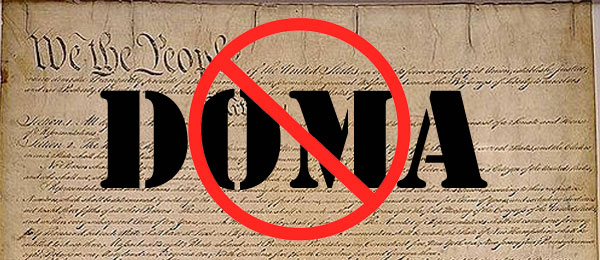Yesterday the Supreme Court of the United States published two rulings of interest to the whole country. First, the Court ruled that the provision of the celebrated Defense of Marriage Act (DOMA), which denies federal benefits to same-sex couples, is unconstitutional. In a second opinion, the court refused to overturn a lower-court decision striking down the California marriage law, which paves the way for same sex marriages to resume in California.
Predictably reactions to these rulings are strong and conflicting. Supporters of same sex marriage, among them our President, hail them as righting a wrong. Supporters of defining marriage as between one man and one woman view them as yet another instance of social and political imposition of moral and spiritual values contrary to their understanding of their faith.
As Free Methodists, we remain committed to our best understanding of what God intended from the very beginning, what Jesus affirmed, and what virtually all followers of Christ have understood almost universally until relatively recently. We do affirm that from the beginning God intended marriage as composed of one man and one woman committing themselves to one another in a life-long covenant of faithful love. In this union, where two become one flesh, God intends the reflection of God’s own self, God’s own image (see our Book of Discipline, par. 3215, 3311).
The Supreme Court rulings are legal rulings that will have legal consequences that play out in multiple directions and levels. Some of those consequences will no doubt affect us, in many different ways. What shall we do now?
The Church must pursue its mission and vision: love God, love people, and make disciples. The church must become healthy biblical communities of holy people … through whom God brings wholeness to a broken and hurting world.
More specifically, the Free Methodist Church’s response to the challenges of same-sex relationships and marriage flows from the message of the gospel —that we are saved by grace through faith, that we will be judged finally on the basis of how we have responded to Jesus, not according to the particular forms of sin we have chosen compared with others.
The message of the gospel is that Jesus saves, that he does so completely or wholly, on his own time table, by the convicting and transforming power of the Spirit, and most often in the community of others who are also being saved from their sins and the impact of sin upon their lives.
We will proclaim the good news in Jesus as the remedy God offers us, whatever particular sin grips us most firmly—all in the spirit of Jesus’ person and ministry. We can be “correct” but then corrupt or counter the impact of the truth by a spirit contrary to Jesus’ spirit.
We will trust the Holy Spirit to convict people of their sin, to enliven hope of transforming possibilities, and then to lead people to God’s best for their lives.
We will be a people who offer ourselves as agents of Jesus’ grace and love to others, all others. We must reach out and welcome people in the Spirit of Jesus, in faith that Jesus knows how to care for all of us and bring us to his best. As we do, we must not give up on people, and must confidently hope and wait for the wholeness Jesus promised and will surely affect.
In the meantime, we will be people of such faith, hope and love individually and corporately with relentless passion. Therefore, let us evaluate ourselves against the welcome and grace of Jesus for others, and not give up on others, even as Jesus did not give up on us.
